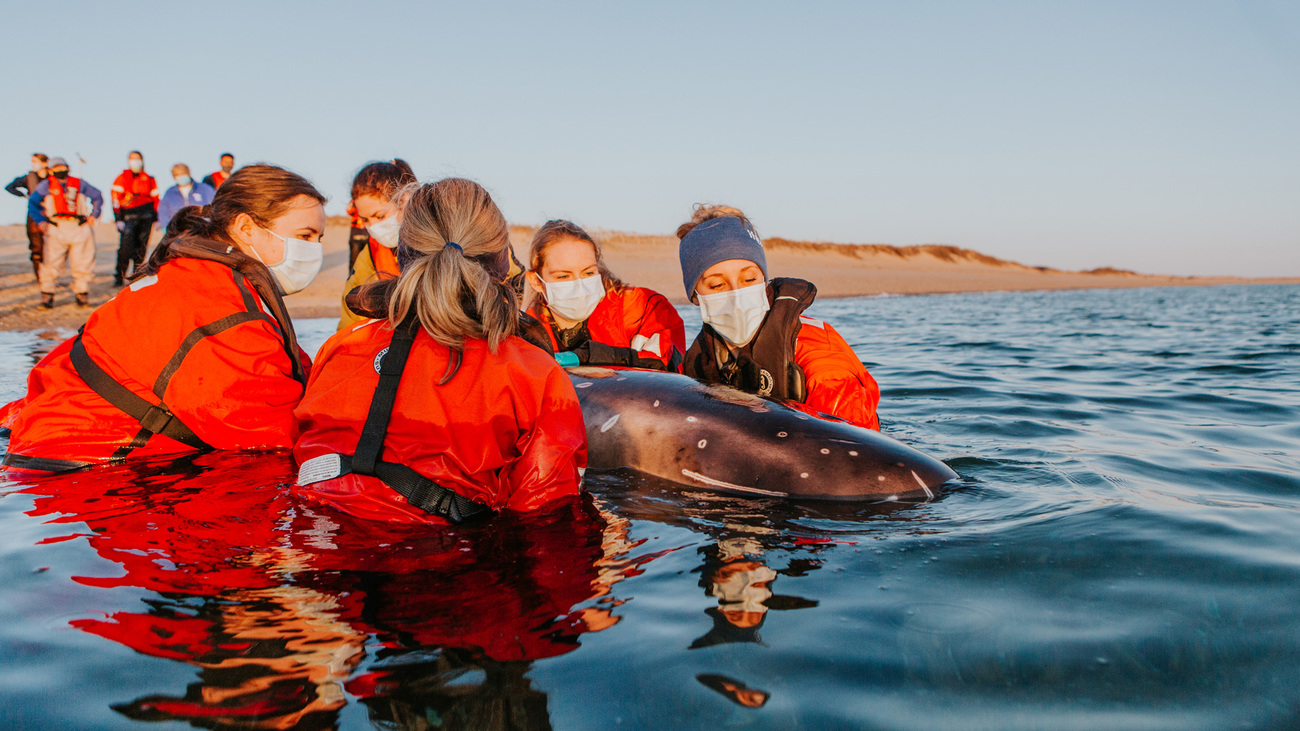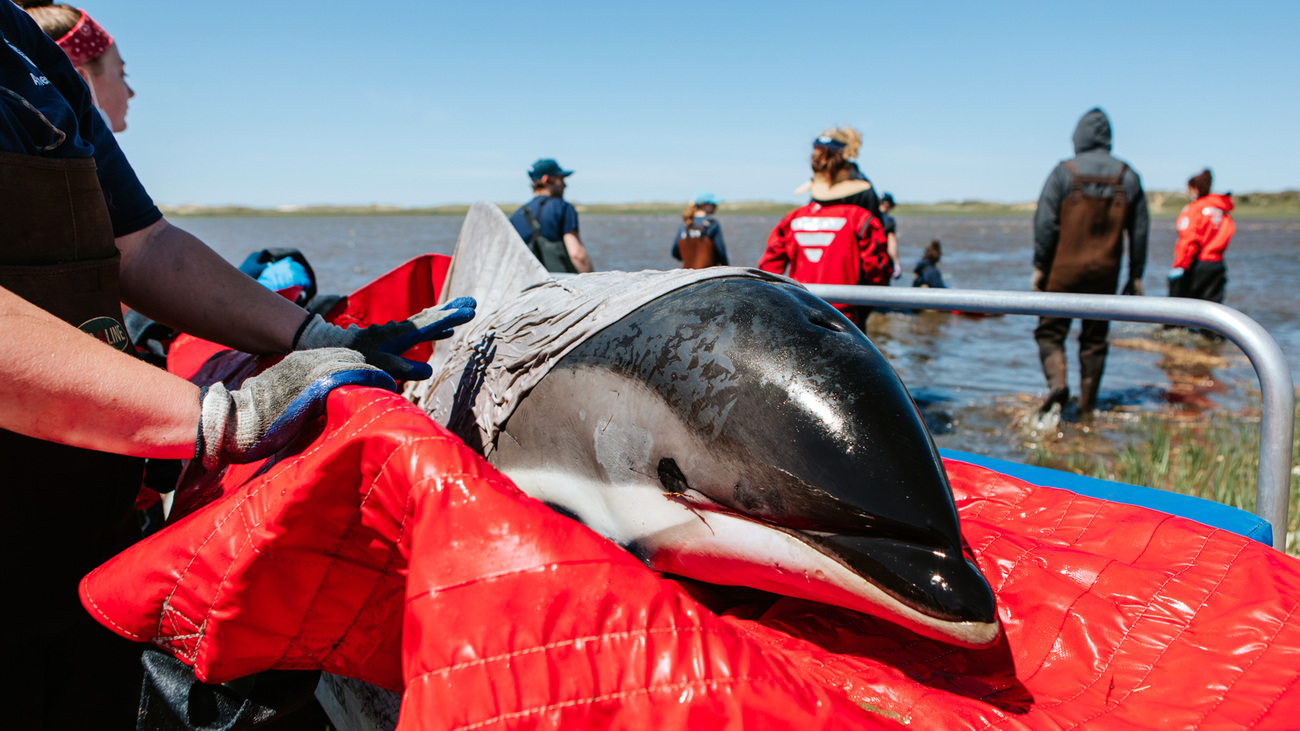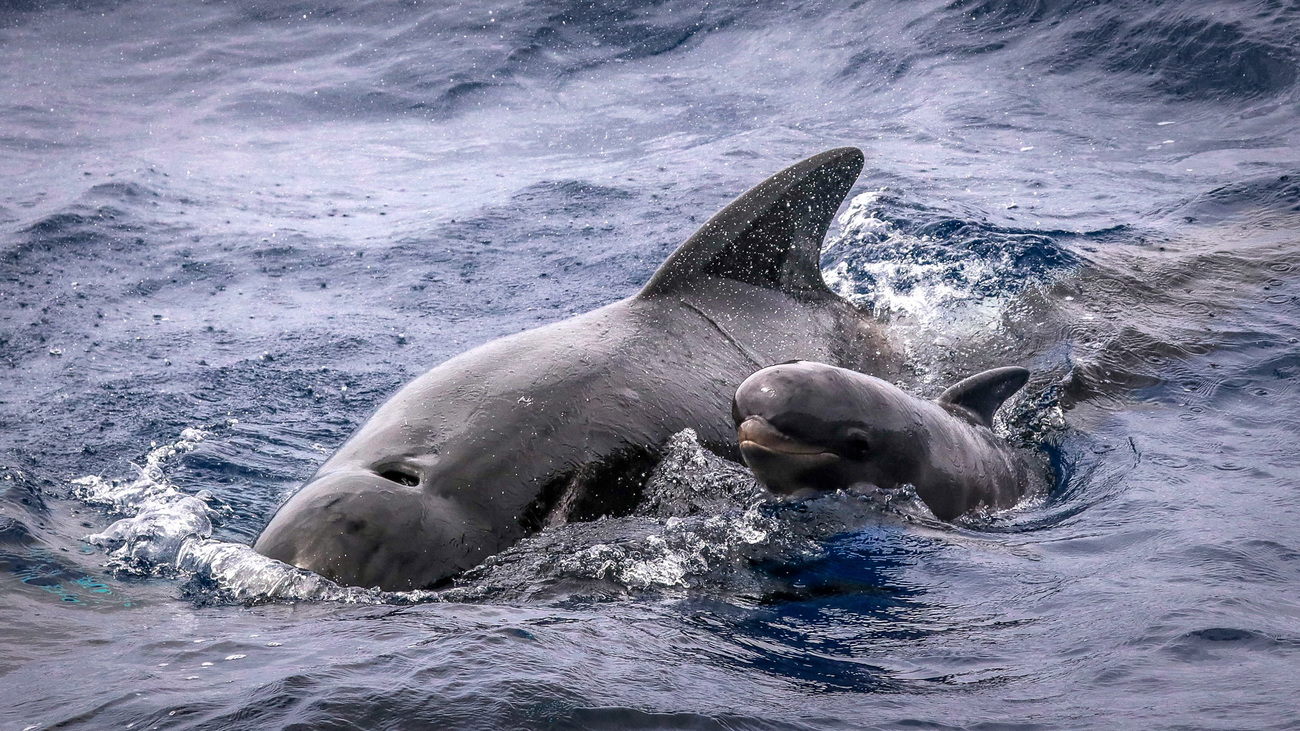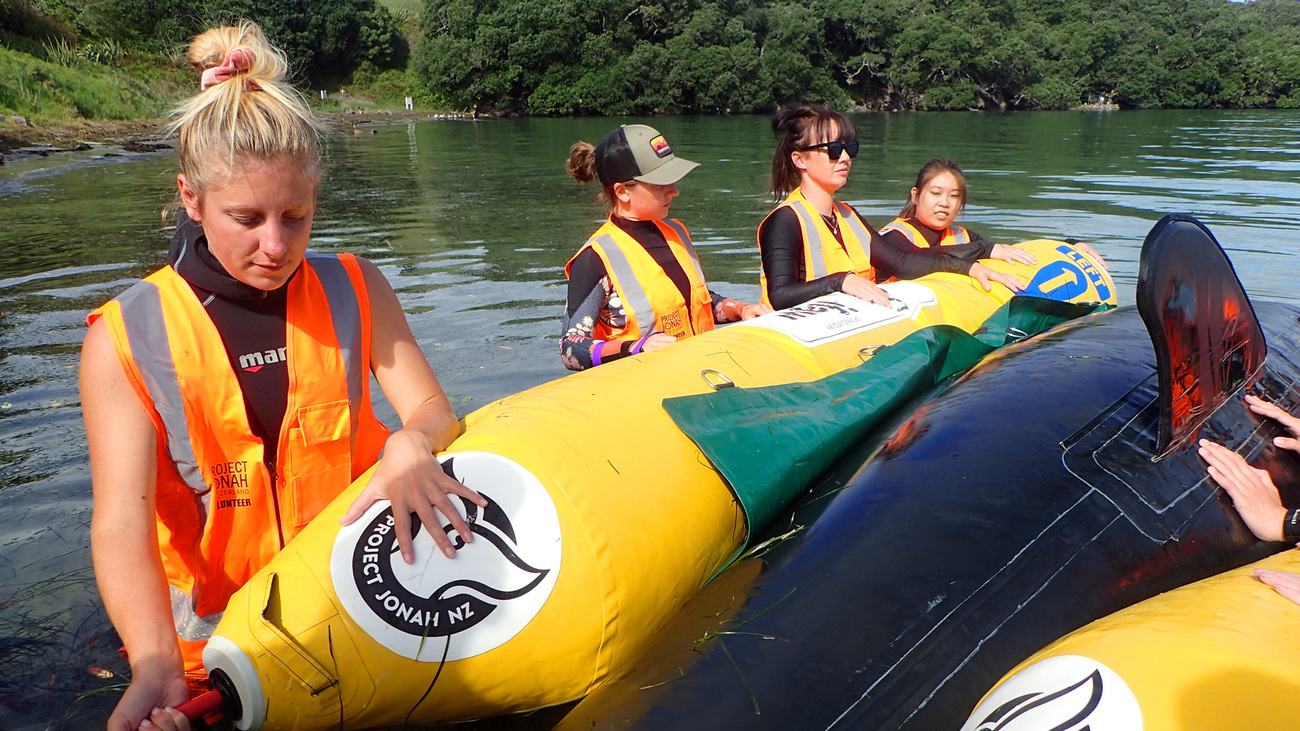marine mammal rescue
marine mammal rescue
IFAW rescues marine mammals and advances stranding science by improving stranding response methods and conducting training, innovating effective techniques in the field and providing mutual aid, training and sharing protocols. IFAW’s Marine Mammal Rescue programme is a world-recognised leader in stranding response. In FY22, the team responded to 264 stranded marine mammals. This included responses to 51 live cetaceans (including small whales, dolphins and porpoises), 29 of which were released back into the wild.
IFAW’s team not only rescues and provides cutting-edge veterinary care to individual animals, but also drives constant innovation and ground-breaking research that is shared with collaborators from around the world. We continue working to increase the survival rate of stranded or at-risk marine mammals and share our knowledge to improve stranding response and welfare globally. We use data in an effort to improve the welfare of individual marine mammals and promote conservation.
increasing the survival rate of stranded marine mammals
seven stranded dolphins return to the wild
In the early hours of 18 May 2022, calls to IFAW’s Stranding Hotline alerted us of dolphins stranded in a tidal area of the Herring River in the Wellfleet area of Cape Cod, U.S. Wellfleet is the busiest area in the world for mass stranding events due to its hooked shape and the large tidal fluctuations in Cape Cod Bay.
More than 40 staff, interns, AmeriCorps members and trained volunteers quickly mobilised and responded, with support from the National Park Service for managing crowds and logistics. Seven Atlantic white-sided dolphins were found stranded and IFAW coordinated how to quickly reach the dolphins and get our equipment out to their challenging location.
Our team faced the increased difficulty of rising waters, but were able to apply cooling blankets on the dolphins that, when soaked in water, act to maintain a healthy body temperature for animals (such as horses) in hot weather.
Thanks to a strong local community and IFAW’s extensive volunteer network, all seven dolphins were rescued, received health assessments, treated and transported to a deeper water release site off Provincetown. The dolphins were transported in IFAW’s mobile dolphin rescue clinic, our one-of-a-kind, customdesigned vehicle that enables IFAW experts and veterinarians to treat as many as nine dolphins at a time for dehydration and trauma caused by stranding.
scaling up protection thanks to contribution from the Dutch Postcode Lottery
Thanks to a very generous contribution of €1.5 million from the Dutch Postcode Lottery, IFAW will be able to further scale up the protection of whales, dolphins and porpoises. These animals play an important role in regulating marine ecosystems and in storing CO2, thus helping to combat climate change. The donation will support IFAW in improving the chances of survival of rescued marine mammals after their release through a new pilot project to establish an innovative Cetacean Intensive Care Unit. IFAW will also establish a long-term and sustainable international training programme to support and educate first responders and work to reduce threats to these animals in their habitats.
reaching students in New Zealand
In FY22, we provided grant funding to long-term partner Project Jonah, to deliver marine mammal conservation messaging in schools and to inspire young wildlife advocates in New Zealand. In FY23, the grant will fund two educator positions and aims to reach several thousand students.
IFAW thanks all our donors, supporters and partners around the world who enabled our impact in the area of marine mammal rescue in FY22, with special acknowledgment of:
Dutch Postcode Lottery
National Oceanic and Atmospheric Administration (NOAA): Prescott Grant
Marine Mammal Rescue in Oceania
working together for Oceania’s marine life
Each year, hundreds of whales and dolphins strand across the shores of New Zealand. Some may be sick or injured, while others are healthy and need a helping hand back out to sea.
IFAW has a vital partnership with local group Project Jonah which responds to strandings throughout the country. Our U.S–based, world-renowned Marine Mammal Rescue & Research (MMRR) team shares its expertise and offers advice to Project Jonah when needed.
We have also been collaborating on a first-of-its-kind satellite tagging project in New Zealand with Project Jonah, Massey University and the Department of Conservation. Through this collaboration, we hope to better understand the welfare outcomes of whales that have been released back into the ocean after a stranding.
Our work with the Organisation for the Rescue and Research of Cetaceans in Australia (ORRCA) continues. We support their rescue missions through advocacy and funding critical resources.
IFAW has also been a long-standing supporter of the ORRCA whale census – a yearly event hosted in collaboration with the New South Wales (NSW) National Parks and Wildlife Service.
During the one-day event members of the public are encouraged to visit a headland or whale watching deck and record all sightings of whales, seals and dolphins.
The findings help ORRCA to better understand whale movements and behaviour around Australia. By collating this information, we hope to be able to help and protect our marine life to thrive into the future.
Stay in the know. Be ready to act.
You’ll receive news, updates on activities and on future giving opportunities. You can unsubscribe at any time.


